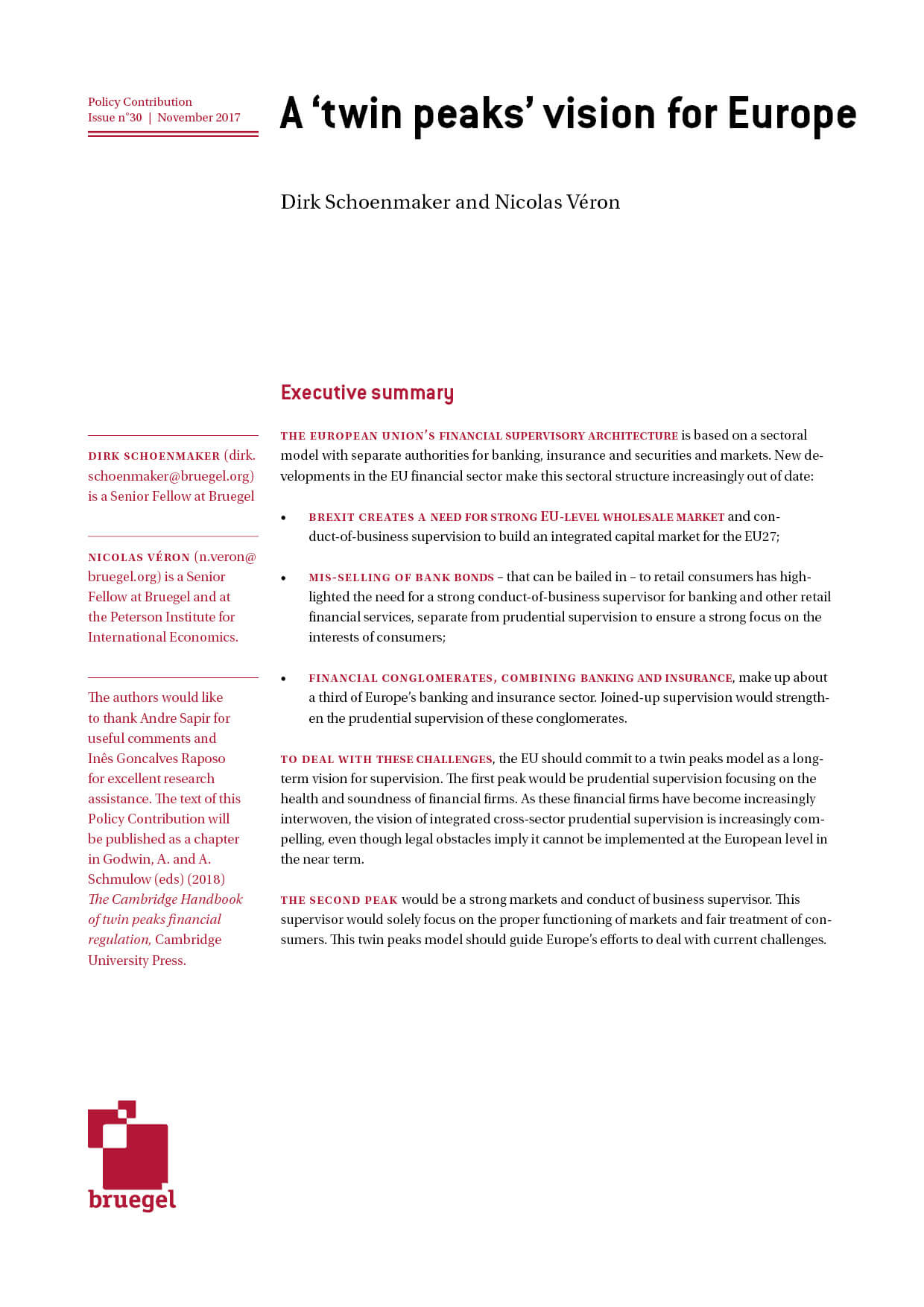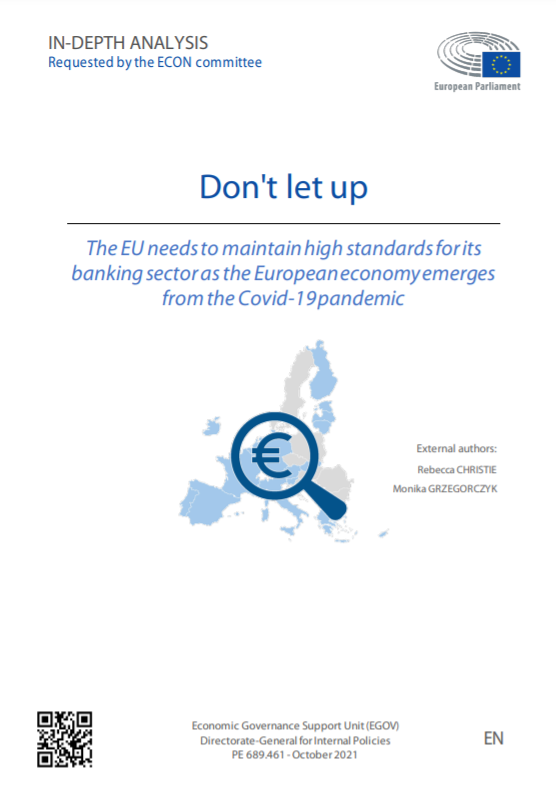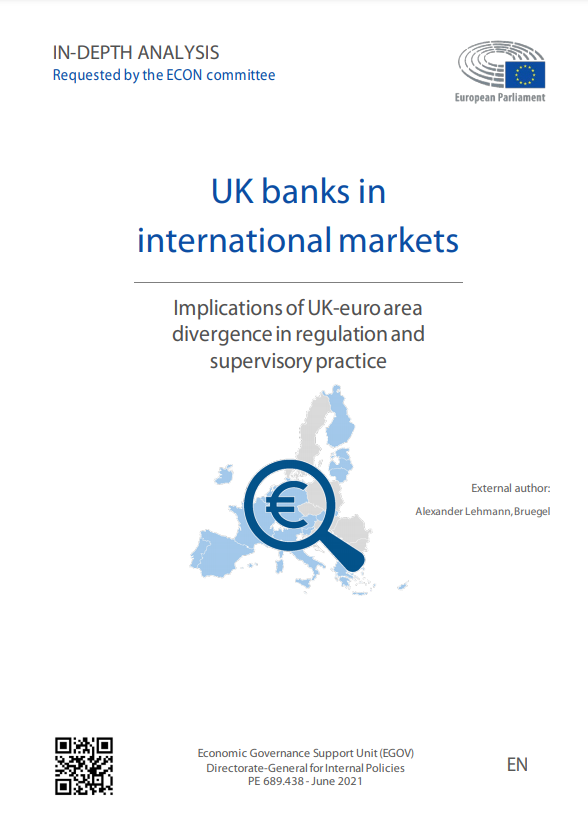Policy Contribution
A ‘twin peaks’ vision for Europe
The organisation of the European Supervisory Authorities (ESAs) is based on a sectoral approach with one ESA for each sector, with separate authorities for banking, insurance and securities and markets. But is this sectoral approach still valid? This Policy Contribution outlines a long-term vision for the supervisory architecture in the European Union.
Erratum 6 December 2017: Table 1, page 3. “Portugal is currently reviewing its supervisory model.”
The European Union’s financial supervisory architecture is based on a sectoral model with separate authorities for banking, insurance and securities and markets. New developments in the EU financial sector make this sectoral structure increasingly out of date:
- Brexit creates a need for strong EU-level wholesale market and conduct-of-business supervision to build an integrated capital market for the EU27;
- Mis-selling of bank bonds – that can be bailed in – to retail consumers has highlighted the need for a strong conduct-of-business supervisor for banking and other retail financial services, separate from prudential supervision to ensure a strong focus on the interests of consumers;
- Financial conglomerates, combining banking and insurance, make up about a third of Europe’s banking and insurance sector. Joined-up supervision would strengthen the prudential supervision of these conglomerates.
To deal with these challenges, the EU should commit to a twin peaks model as a long-term vision for supervision. The first peak would be prudential supervision focusing on the health and soundness of financial firms. As these financial firms have become increasingly interwoven, the vision of integrated cross-sector prudential supervision is increasingly compelling, even though legal obstacles imply it cannot be implemented at the European level in the near term.
The second peak would be a strong markets and conduct of business supervisor. This supervisor would solely focus on the proper functioning of markets and fair treatment of consumers. This twin peaks model should guide Europe’s efforts to deal with current challenges.















